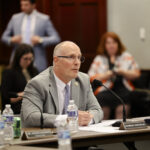The decision by the government to fund childcare for wealthy families, regardless of their employment status, has raised concerns from both a leading expert and a Senator. Graham Young, Executive Director of the Australian Institute for Progress, criticized the move as a political ploy by Prime Minister Anthony Albanese to secure votes in the upcoming election. The plan, which eliminates the current Activity Test requirement, would provide three days of subsidized childcare per week without the need for families to prove their work, study, or training status.
If re-elected, the Labor government plans to implement the $1 billion Building Early Education Fund in July 2025. This fund aims to expand childcare centers in underserved areas and provide subsidies for households earning up to $530,000 annually. However, critics like Young argue that this universal childcare support for wealthy families is economically unsound and not in line with educational principles.
The government defends its plan as a step towards ensuring that all children are prepared for school. Education Minister Jason Clare highlighted the proposed 15 percent pay rise for childcare workers and increased affordability for over a million Australian families. Prime Minister Albanese emphasized the potential positive impact on children’s lives through universal access to quality early education.
Despite the government’s intentions, Nationals Senator Matt Canavan opposes the reforms, labeling them as a subsidy for affluent families who do not necessarily need to work. He questions the justification for providing childcare funding to households that exceed the median income level and believes that welfare support should be based on genuine need rather than universal entitlement. Please rewrite this sentence.
Source link





